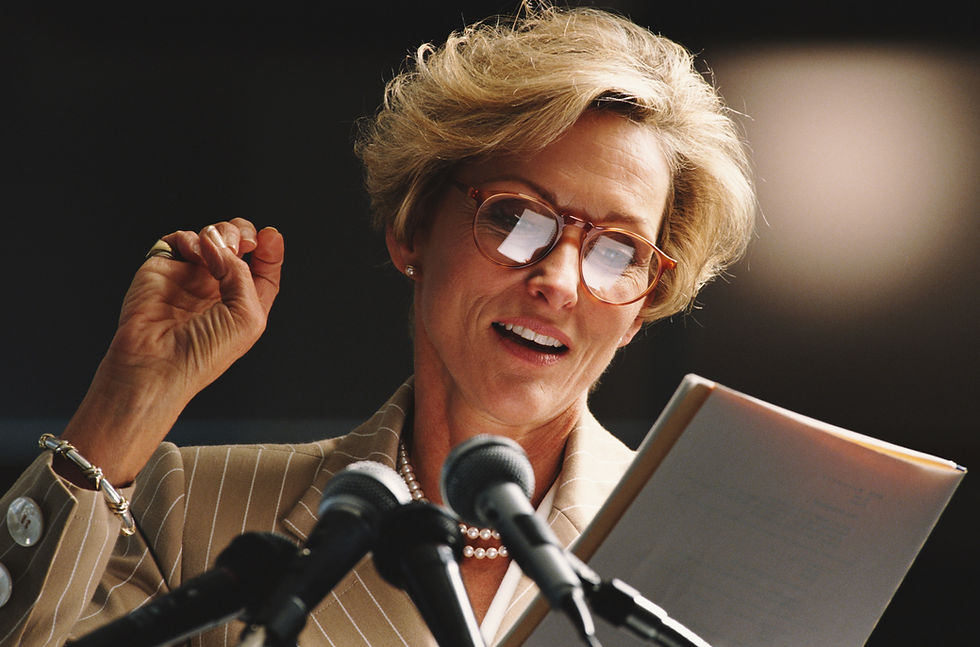Being a Mother and an Advocate
- Stasia Winslow
- Jan 8, 2023
- 3 min read
“Daniel was a very good baby,” my grandmother, Jane Winslow, told me. “He was much more mellow than your father,” she recalled with a smile.
When Daniel was about two and a half, Ms. Winslow began to notice he wasn’t reaching certain milestones. “He was really not behind verbally at all, but he didn’t seem like he was keeping up with the other two and a half year olds physically – you know, riding a tricycle and those types of things.”
Ms. Winslow soon began to realize that getting any medical advice or diagnosis was going to take a significant amount of advocacy on her part. “By the time he was two and a half, I could see it, but I could not get any doctor or pediatrician or anyone to agree with me.”
She enrolled her son in an infant development program that he attended three days a week, where he received physical and occupational therapy. However, without any medical diagnosis or assistance from her pediatrician, Ms. Winslow knew she had to keep advocating for her son. Finally, after exhausting the resources she had in the town they lived in, Portland, Maine, Ms. Winslow decided to send a letter to the Boston Children's Hospital – the best pediatric hospital in the country.
When they arrived at the hospital, the doctors tested Daniel “with every test you can imagine”. They did a test on his chromosomes, and discovered he had an extra piece on the small arm of chromosome 15. At the time, the eighties, there was only one article written on inverted duplicated chromosome 15 syndrome (Dup15Q syndrome) and there were only about 10 known cases.
After the diagnosis, Ms. Winslow still found it difficult to get all the necessary assistance, given that doctors were not knowledgeable about Daniel’s condition. “You still had to be very much an advocate,” she said, “When we brought him back to Maine or took him to other pediatricians, they didn't know much about it. Nowadays, there's an organization for it and there are thousands of people who have been diagnosed since.”
Beyond the medical establishment, Ms. Winslow found that oftentimes, people who she explained the diagnosis to would immediately jump to the conclusion that Daniel had Down syndrome, since that was the only chromosomal mutation they had heard of. She noticed that people did not understand the nuances and differences between different conditions or disabilities, and many times wouldn’t take the time to try and understand.
Ms. Winslow continued to advocate for Daniel throughout his youth, as she kept him in schools every place they moved up until he was twenty years old. After a few years living and working at home in Hawaii, Ms. Winslow enrolled Daniel in an independent living program in California, where he has lived for the last twenty-five years.
“I would say the main thing for someone like Daniel is that they just really need an advocate. The resources are there, but they don't come to you.”
A few years ago, Ms. Winslow attended a Dup15Q Alliance meeting, where she met young mothers who had children with Dup15Q syndrome. Since the diagnosis was very new back when he was diagnosed, Daniel and a few of his peers are the oldest members of this group which now has thousands of members nationwide.
The younger parents of children with Dup15Q Syndrome still have to advocate for their children like Ms. Winslow did, but now, through the Dup15Q alliance, they have a support system of people in similar circumstances. Even a strong advocate needs a strong support system.




Ücretsiz Rastgele Görüntülü Sohbet Kameralı Sohbet Gabile Sohbet Canlı Sohbet Cinsel Sohbet imkanı.
Ücretsiz Rastgele Görüntülü Chat Kameralı Chat Gabile Chat Canlı Chat Cinsel Chat imkanı.
https://www.gevezeyeri.com/cinselsohbet.html Ücretsiz Rastgele Cinsel Sohbet imkanı.
https://www.gevezeyeri.com/gabilesohbet.html Ücretsiz Rastgele Gabile Sohbet imkanı.
https://www.gevezeyeri.com/cinsel-chat Ücretsiz Rastgele Cinsel Chat imkanı.
https://www.gevezeyeri.com/gabile-chat Ücretsiz Rastgele Gabile Chat imkanı.